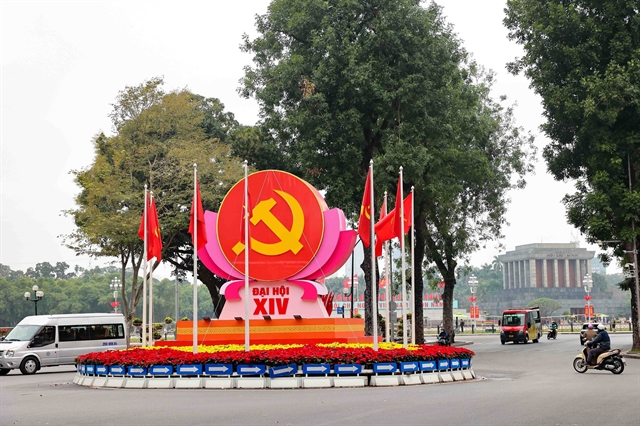 Media-OutReach Newswire
Media-OutReach Newswire

HONG KONG, CHINA - MediaOutReach - 3 October 2019 - Grade A office rentsin Greater Central softened significantly in Q3 against a backdrop of weakleasing demand in core areas and a continuing trend of MNCs relocating tonon-core areas. A slew of pre-leasing transactions agreed well before thesocial unrest commenced, contributed to an overall positive absorption, but ingeneral, tenants held off committing to relocations or expansion in the face ofgrowing economic and social instability. As a result, availability in GreaterCentral rose to 7.4% in Q3, the highest level in 14 years. While the negativeimpact has yet to fully trickle down into the office market, the retail leasingmarket is taking the immediate brunt following a severe drop in tourist arrivals.
Net absorption in the overall Grade A office market fellfrom 513,697 sq ft in Q2 to 295,214 sq ft in Q3. Most of thetransactions were concentrated in non-core areas such as Hong Kong East, wherein one of the largest examples, WPP leased 111,000 sq ft in K11 Atelier onKing's Road. Whilst there were other significant leasing transactions in coreareas, their average sq ft size was much less than witnessed in previousquarters. Mr Keith Hemshall, Cushman& Wakefield's Executive Director, Head of Office Services, Hong Kong,commented, "While pre-leasing deals concluded well before June 2019 supportedoverall net positive absorption in the quarter, we have in fact witnessed adeterioration in market sentiment with many clients shelving relocation or expansionplans until the socio-economic situation improves. As a result, we expect demandto drop considerably in Q4 with net absorption for 2019 falling to less thanhalf the level last year."
As occupier movements fell,demand weakened, and sentiment turned cautious, overall net effective officerentals dropped for the second consecutive quarter to HK$74.7 per sq ft permonth (down 2.0% quarter-on-quarter). Led by a drop of 3.2% q-o-q in GreaterCentral, most sub-markets experienced rental declines in the quarter. The onlyexception was Hong Kong East where rentals edged slightly higher, by 0.3% q-o-q.Mr John Siu, Cushman & Wakefield'sManaging Director, Hong Kong, commented, "As sentiment in the officemarket has soured considerably in Q3 and with no end yet in sight to the currentinstability, rents across all sub-markets will come under increasing pressure overthe remaining months of this year and into 2020. Our forecasts are for rents inGreater Central to fall by between 6% and 8% this year and by between 8% and13% next year."
A summer of unrest has seen tourist arrivals to Hong Kong plummet,led by a drop in Mainland tourist volumes by 42.3% y-o-y in August. Retailsales took the brunt: Government figures showed the steepest decline on recordby 23.0% y-o-y in August, led by a drop of 47.4% y-o-y in the jewelry &watches sector. The traditionally strong medicines & cosmetics sector alsorecorded a drop of more than 30%.As sales dwindled, retail rents in both coreand non-core areas declined in Q3, led by a 7.0% drop in Causeway Bay which hastaken the hardest hit from the declining numbers of tourists and interruptionsto business due to the social unrest. With tourist arrivals expected to remainmuted in Q4, forecasts for rents in Causeway Bay in 2019 to fall between 11%and 13% for the year as a whole.
F&B spending also decreased: As of September (estimation), businessfor Chinese restaurants was down by 10-12% and non-Chinese restaurants down by 5-7%,while the fast food and drinks sector maintained a growth of 1-4%. Alongsidethe drop off in tourist arrivals, a fall in local consumption is also seen tobe a contributing factor to the decline as many seek to avoid the unrest,particularly during evenings and on weekends. As in the case of high-street retail rents,F&B rents fell across all sub-markets, by between 3.0% and 4.1%, again withCauseway Bay suffering from the sharpest drop.
Mr Kevin Lam,Cushman & Wakefield's Executive Director, Head of Retail Services, HongKong, said, "It is a hard time forretailers and the dismal market sentiment will continue into the next quarter,as a solution to the current social quagmire is not yet in sight. However, tradesthat focus on mass market demand and local consumption should fare better, suchas the sports/athleisure and education sectors, should fare better in thecurrent environment. We are seeing a number of such retailers looking foropportunities to expand or seeking a better rental package amid the current marketcorrection."
Cushman & Wakefield (NYSE: CWK) is a leading globalreal estate services firm that delivers exceptional value for real estateoccupiers and owners. Cushman & Wakefield is among the largest real estateservices firms with 51,000 employees in approximately 400 offices and 70countries. Across Greater China, there are 21 offices servicing the localmarket. The company won four of the top awards in the Euromoney Survey 2017& 2018 in the categories of Overall, Agency Letting/Sales, Valuation andResearch in China. In 2018, the firm had revenue of $8.2 billion across coreservices of property, facilities and project management, leasing, capitalmarkets, advisory and other services. To learn more, visit www.cushmanwakefield.com.hk or follow us onLinkedIn (https://www.linkedin.com/company/cushman-&-wakefield-greater-china)




